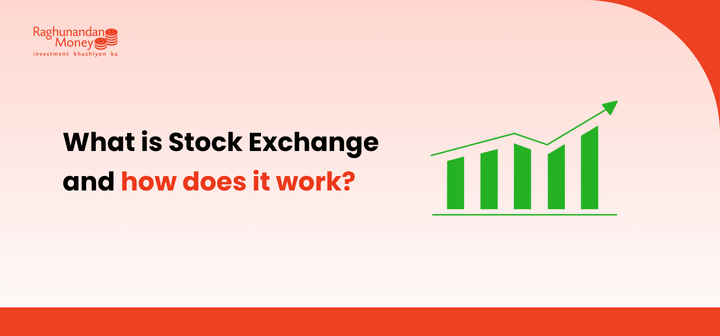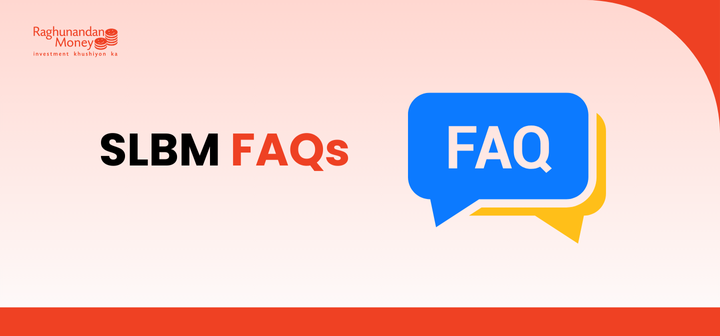What is Stock Exchange and how does it work?
Disclaimer: Investments in the securities market are subject to market risks. This content is for educational purposes only and does not constitute financial advice.
A stock exchange is a crucial component of the financial market that facilitates transactions between traders of financial instruments and targeted buyers. In India, stock exchanges operate under the regulatory framework of the Securities and Exchange Board of India (SEBI), which aims to protect investors’ interests and promote a well-functioning capital market.
What is a Stock Exchange?
A stock exchange is a marketplace where financial instruments such as stocks, bonds, and commodities are traded. It provides a structured environment where buyers and sellers conduct transactions during specific business hours, adhering to SEBI’s well-defined regulations. However, only companies listed on a stock exchange are eligible to trade on it.
Stocks that are not listed on an official stock exchange can still be traded in an Over-the-Counter (OTC) market, but these stocks generally carry lower credibility and liquidity.
How Does a Stock Exchange Work?
Unlike some global stock markets, Indian stock exchanges function independently without market makers or specialists. Instead, they operate on an order-driven system managed electronically.
- Orders are processed via an electronic limit order book, ensuring transactions are automatically matched using a trading computer.
- This order-driven system enhances transparency by publicly displaying all market orders.
- Brokers play a key role, as all transactions are routed through them.
- Direct Market Access (DMA) allows institutional investors and retail traders to place orders directly into the trading system through broker-provided terminals.
Benefits of Listing on a Stock Exchange
Listing on a stock exchange provides companies with several advantages, benefiting investors and the general public:
1. Increased Market Value
- Stocks listed on reputed stock exchanges enjoy higher credibility and valuation.
- Companies can expand their shareholder base by issuing shares in the market.
2. Access to Capital
- Listed companies can raise capital efficiently through share issuance.
- Their reputation in the stock market makes it easier to attract investors and secure funding.
3. Collateral Value
- Most lenders accept listed securities as collateral for loans.
- Listed companies enjoy faster loan approvals due to their credibility in the financial market.
4. Liquidity
- Stock exchange listing allows shareholders to liquidate their investments easily.
- Investors can trade shares quickly and benefit from price appreciation.
5. Fair Pricing
- Stock prices on exchanges reflect real-time market demand and supply.
- Investors benefit from price transparency and fair market valuation.
Investment Methods in a Stock Exchange
Investors can participate in the stock market through two main avenues:
1. Primary Market
- This is where new securities are issued by companies for the first time.
- Investors can buy shares directly from the issuing company through Initial Public Offerings (IPOs).
2. Secondary Market
- Investors trade already-issued securities without the involvement of the issuing company.
- This market is further classified into:
- Auction Market: Transactions occur through bidding processes.
- Dealer Market: Transactions happen through intermediaries.
Major Stock Exchanges in India
India has several stock exchanges, but the two most significant ones are:
1. Bombay Stock Exchange (BSE)
- Established in 1875, making it Asia’s oldest stock exchange.
- The Sensex index tracks BSE’s performance.
2. National Stock Exchange (NSE)
- Founded in 1992 to introduce electronic trading in India.
- The NIFTY 50 index is widely used to assess market performance.
Other Stock Exchanges in India
Besides BSE and NSE, other recognized exchanges include:
- Multi-Commodity Exchange (MCX)
- National Commodity and Derivatives Exchange (NCDEX)
- India International Exchange (India INX)
To get a detailed overview of stock exchanges in India, please check out this blog: (Link will be inserted once published).
Impact of Stock Exchanges on Economic Growth
Stock exchanges play a vital role in shaping the country’s financial landscape. They influence economic stability and global financial trends. A major fluctuation in India’s stock exchanges, such as a fall in BSE Sensex, often leads to ripple effects across other major stock exchanges worldwide, including the New York Stock Exchange (NYSE), Tokyo Stock Exchange, and Shanghai Stock Exchange.
FAQs
Q1: What is a stock exchange in India?
Ans: A stock exchange is a marketplace where stocks, bonds, and other financial securities are traded, following SEBI guidelines.
Q2: How many stock exchanges exist in India?
Ans: There are 23 stock exchanges in India where investors can trade various financial instruments.
Q3: What are the functions of a stock exchange?
Ans: A stock exchange facilitates securities trading, regulates issuance and redemption, and ensures price transparency.
Q4: What is the Bombay Stock Exchange (BSE)?
Ans: BSE is India’s oldest and one of the world’s largest stock exchanges, established in 1875.
Q5: What is the National Stock Exchange (NSE)?
Ans: NSE is India’s largest electronic stock exchange, pioneering screen-based trading and ranking among the top global exchanges.
Need Help?
Phone: 0562-4266600 / 0562-7188900
Email: askus@rmoneyindia.com

Stock Trading Now trade in ₹9 Per Order or ₹ 999 Per Month Plans.
Future & Options Access F&O contracts with advanced tools for hedging and speculation.
Currency Trading Trade in major currency pairs and manage forex exposure efficiently.
Commodity Trading Diversify Trading with MCX & NCDEX by Trading in Gold, Silver, Base Metals, Energy, and Agri Products.
Margin Trading Funding Boost your buying power with upto 5X, Buy now Pay Later
Algo Trading Back test, Paper Trade your logic & Automate your strategies with low-latency APIs.
Trading View Leverage Trading View charts and indicators integrated into your trading platform.
Advanced Options Trading Execute multi-leg option strategies with precision and insights.
Stock Lending & Borrowing Earn passive income by lending stocks securely through SLB.
Foreign Portfolio Investment Enable NRIs and FPIs to invest in Indian markets with ease and compliance.
IPO Invest in upcoming IPOs online with real-time tracking and instant allotment updates.
Direct Mutual Funds 0% Commissions by investing in more than +3500 Direct Mutual Fund Scheme.
Corporate FDRs Earn fixed returns with low-risk investments in high-rated corporate fixed deposits.
Stocks SIPs Build long-term wealth with systematic investment plans in top-performing stocks.
Bonds & NCDs Access secure, fixed-income investments through government and corporate bond offerings.
Depository Services Safely hold and manage your securities with seamless Demat and DP services with CDSL.
Journey Tracing our growth and milestones over time.
Mission & Vision Guided by purpose, driven by long-term vision.
Why RMoney Platform Smart, reliable platform for all investors' needs.
Management Experienced leadership driving strategic financial excellence.
Credentials Certified expertise with trusted industry recognition.
Press Release Latest company news, updates, and announcements.
Testimonials Real client stories sharing their success journeys.
7 Reasons to Invest Top benefits that make investing with us smart.
SEBI Registered Research Trusted insights backed by SEBI-compliant research.
Our Technology Advanced tools enabling efficient online trading.
Calculators Access a suite of smart tools to plan trades, margins, and returns effectively.
Margin Calculator Instantly check margin requirements for intraday and delivery trades.
MTF Calculator Calculate MTF funding cost upfront to ensure full transparency before placing a trade.
Brokerage Calculator Know your exact brokerage charges before placing any trade.
Market Place Explore curated investment products and trading tools in one convenient hub.
RMoney Gyan Enhance your market knowledge with expert blogs, videos, and tutorials.
Performance Tracker Track our research performance with full transparency using our performance tracker.
Feedback Share your suggestions or concerns to help us improve your experience.
Downloads Access important forms, software, and documents in one place.
Locate Us Find the nearest RMoney branch or service center quickly.
Escalation Matrix Resolve issues faster with our structured support escalation process.
Back Office Log in to view trade reports, ledger, and portfolio statements anytime.
Account Modification Update personal or bank details linked to your trading account.
Fund Transfer Transfer funds instantly online with quick limit updation to your trading account.
Bank Details View our registered bank account details for seamless transactions by NEFT, RTGS or IMPS.
How to Apply IPO Step-by-step guide to apply for IPOs using your trading account.
RMoney Quick Mobile App Trade on-the-go with our all-in-one mobile trading app.
RMoney Quick login Quickly access your trading account through the RMoney Quick web-based trading.
RMoney Rocket Web Version Experience powerful web-based trading with advanced tools for algo traders.
RMoney Rocket Mobile Version Trade anytime, anywhere with our feature-rich mobile trading platform.




















